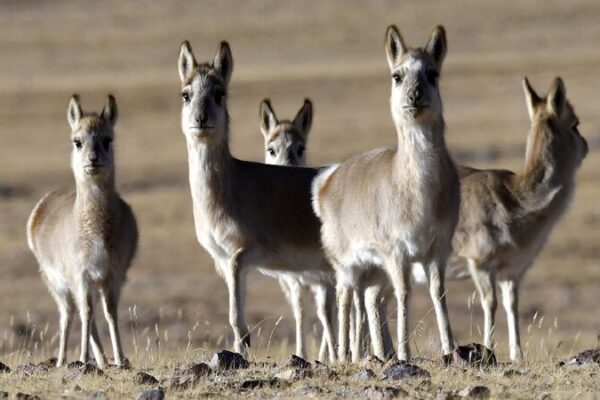China is witnessing a remarkable resurgence in its wildlife populations, thanks to comprehensive conservation efforts over the past few decades.
The National Forestry and Grassland Administration announced on Monday that the number of wild giant pandas has climbed from around 1,100 in the 1980s to nearly 1,900 today. Similarly, the population of snow leopards has rebounded to over 1,200, while wild Asian elephants have increased from just over 150 to more than 300.
Notably, the Tibetan antelope population has soared from approximately 60,000 to 70,000 in the late 1990s to over 300,000 today. In addition, more than 200 endangered plant species have been successfully reintroduced, experiencing significant recovery and protection.
These achievements are attributed to China’s relentless efforts in refining policies and legal frameworks, alongside increased financial investment in conservation. The administration emphasized that moving forward, China will continue to strengthen the protection of wildlife and plants, promoting modernization that ensures harmonious coexistence between humans and nature.
As global efforts to protect wildlife gain momentum, countries around the world are intensifying their conservation initiatives.
In Africa, nations are tackling threats of poaching and habitat destruction. Botswana has called for increased funding to bridge the conservation financing gap, while Kenya has launched a national plan to safeguard endangered species like the grey crowned crane. In Pakistan, the Green Pakistan program emphasizes community-based conservation, focusing on species such as snow leopards and the Indus River dolphin.
These collective efforts reflect a shared global commitment to preserving biodiversity for future generations.
Reference(s):
China leads in wildlife conservation as global efforts expand
cgtn.com








